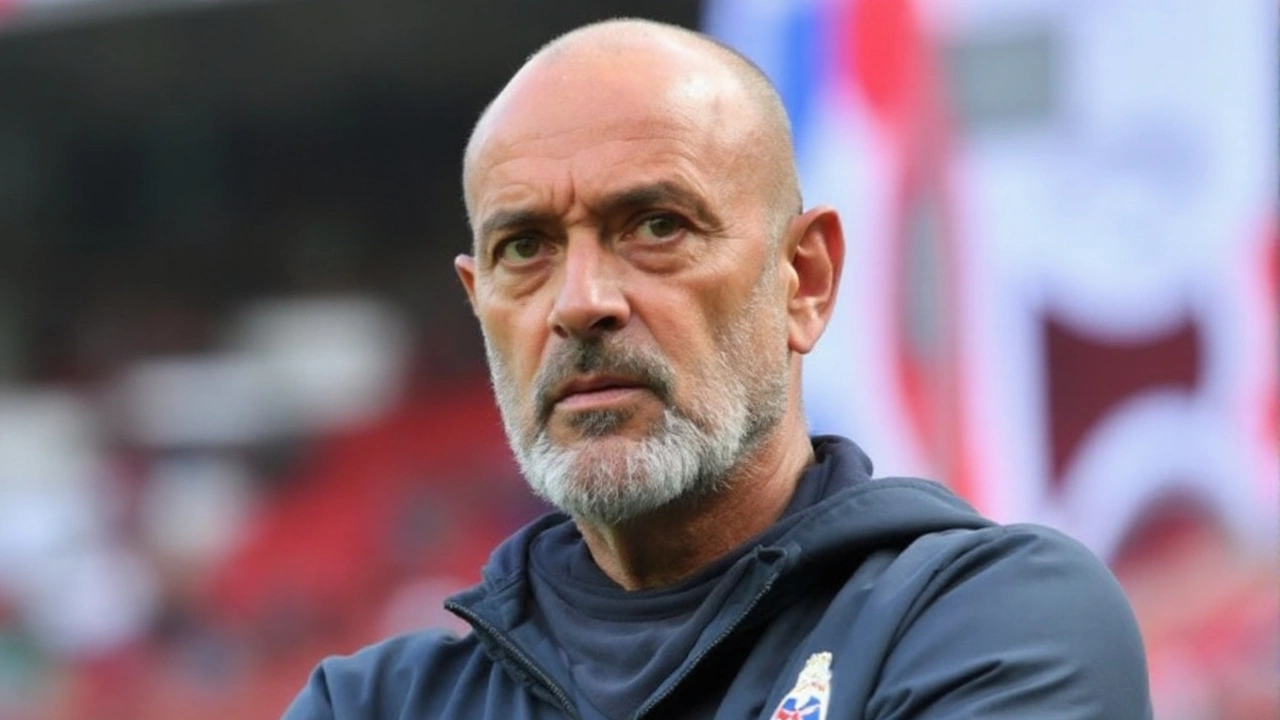Nuno Espirito Santo
When talking about Nuno Espirito Santo, a Portuguese football manager known for tactical flexibility and success with clubs across Europe. Also known as Nuno ES, he blends defensive discipline with attacking flair. His journey began in the youth setups of Portuguese football, the domestic system that shaped his early coaching philosophy, where he learned the value of nurturing local talent. From those roots he stepped onto the Premier League, England's top division where he led Wolverhampton Wanderers to impressive finishes. The move highlighted how a manager’s adaptability can bridge different football cultures.
One key lesson from Nuno’s career is that football manager roles demand more than just match‑day decisions; they require strategic planning around transfers, youth development, and club finances. For example, his work at FC Porto showed how smart recruitment can complement a tight budget, while his time at Wolves demonstrated the impact of an analytical approach to player performance data. These experiences underline the semantic triple: *Nuno Espirito Santo* requires tactical adaptability, and tactical adaptability influences team success.
What makes a manager like Nuno Espirito Santo stand out?
First, his defensive setups often start with a compact back line that presses high, forcing opponents into mistakes. Second, he pairs that with quick transitions, using wingers who can stretch the field. This balance of defense and attack mirrors the broader trend in modern football where managers blend traditional formations with fluid roles. The semantic triple here reads: *Portuguese football* encompasses strong defensive foundations, and *strong defensive foundations* enable flexible attacking play.
Another dimension is Nuno’s emphasis on youth academies. At Porto he trusted home‑grown talents, and later at Wolves he integrated promising loanees into the first‑team squad. This approach resonates with the post about private soccer league financing, where revenue from player sales often funds club growth. The link is clear: *club finance* drives *youth development* decisions, and *youth development* supports *long‑term competitiveness*.
Fans also notice his willingness to adjust tactics mid‑game. Whether shifting from a 4‑3‑3 to a 3‑5‑2, he reads the opposition and makes pragmatic changes. That adaptability mirrors the dynamic in the “soccer vs NBA” discussion where sport preferences shift based on personal taste and strategic nuance. Here, the triple is: *tactical flexibility* relates to *coach credibility*, and *coach credibility* affects *fan engagement*.
Equipment safety is another subtle factor. While many players skip protective cups for speed, Nuno’s training sessions often stress proper gear to avoid injuries that could derail a season. This ties back to the post about soccer players and protective cups, underscoring that player safety gear influences team consistency. In Nuno’s world, a well‑protected squad stays on the pitch longer, which directly supports his tactical plans.
Looking at the broader media landscape, streaming platforms have changed how fans watch matches. Nuno’s teams have benefited from global streams that boost club revenue and brand exposure. This mirrors the “free live soccer streaming” article, showing that *media coverage* enhances *club finances*, and *club finances* enable *investment in coaching staff*.
Overall, the collection of posts you’ll find below touches on many of these themes: investment in youth academies, financial models in private leagues, gear choices for players, and the ever‑evolving tactics of modern managers. Whether you’re curious about Nuno’s specific match strategies or the bigger picture of football economics, the articles ahead will give you practical insights and real‑world examples.
Ready to see how these ideas play out across different stories? Dive into the posts below and discover the connections between coaching philosophy, club strategy, and the day‑to‑day realities of the beautiful game.

Nuno Espirito Santo sacked by Nottingham Forest after ownership row as Postecoglou tops shortlist
Nottingham Forest have sacked head coach Nuno Espirito Santo just three games into the 2025-26 Premier League season after a public rift with owner Evangelos Marinakis. A planned meeting in the international break never happened. Ange Postecoglou is the bookmakers’ favorite to replace him, with Jose Mourinho, Marco Silva, and Oliver Glasner also in the frame.